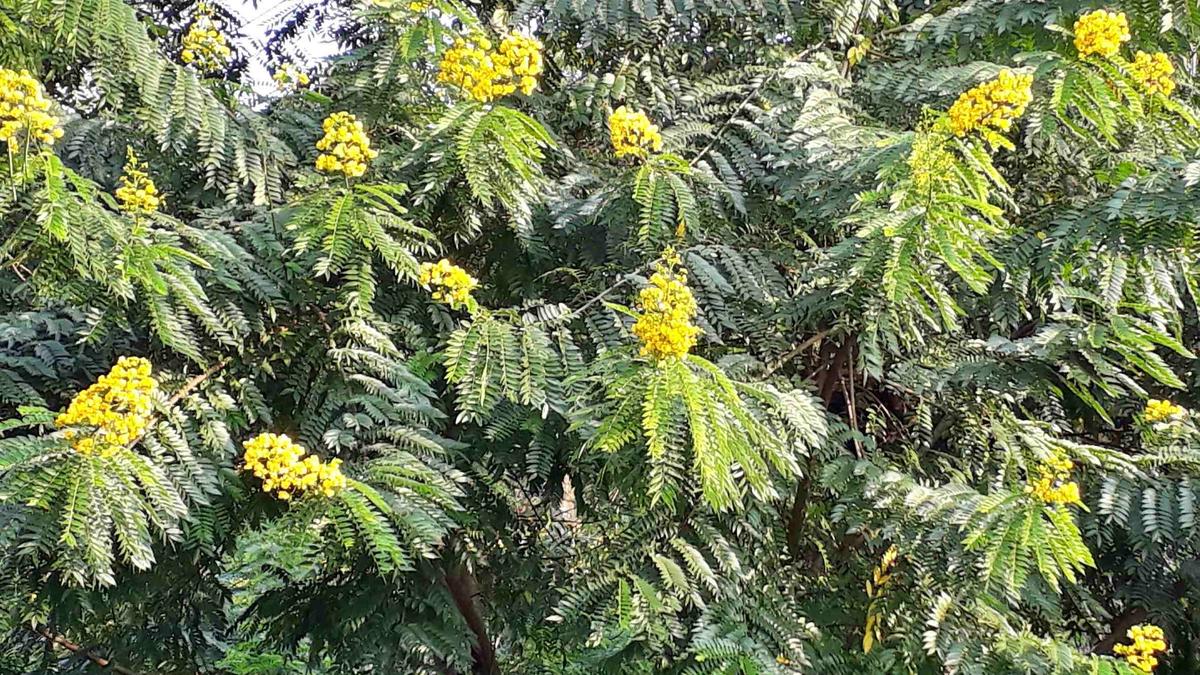
Kerala Forest dept. joins hands with KPPL to eradicate invasive plants from Wayanad Wildlife sanctuary
The Hindu
Forest department partners with KPPL to remove invasive Senna trees from wildlife habitats, promoting eco-restoration in Kerala.
The decision of the Forest department to extract invasive plants like Senna spectabilis, which poses a major threat to wildlife habitat in the Nilgiri biosphere, with the support of Kerala Paper Products Limited (KPPL) gives a fresh lease of life to the habitats in the State, especially the Wayanad Wildlife sanctuary (WWS).
Since the existing norms prevent cutting down trees from protected areas or a wildlife sanctuary, extraction of trees was not feasible. However, the department is gearing up to remove exotic species following a favourable court order issued by the Chennai High Court last year. According to it, if a plant has been declared as a weed it can be extracted even from protected areas.
The Mudumalai and the Sathyamangalam tiger reserves in Tamil Nadu began extracting the senna tree after convincing the gravity of the situation to the Court and obtaining the order. They signed a memorandum of understanding(MoU) with Tamil Nadu Newsprint and Papers Limited (TNPL) to remove the trees, for which it was asked to pay a conservation charge. The money has been utilised for the eco-restoration of habitats.
The Forest department is now preparing to sign an MoU with KPPL to replicate the initiative. Under the agreement, KPPL will remove senna trees from 5,000 hectares of forest at ₹350 per tonne and convert them into pulpwood for manufacturing paper.
The sanctuary that spans over 34,440 hectares has over 5,000 hectares infested by the Senna tree. A year ago, the department initiated a ₹1.3-crore project within the WWS to eradicate the plants on 1,672 hectares, with financial support from the National Bank for Agriculture and Rural Development.
Under the project, trees with a girth above 10 cm will be girdled, while those below the size will be uprooted. The department has so far debarked 1.61 lakh trees and uprooted small plants on 1,700 hectares.
“The trees have dried up after debarking, but we found them growing from the roots in some areas. Moreover, the full uprooting method is proving to be capital and labour-intensive. KPPL will remove the trees and destroy the saplings growing from the roots,” said sanctuary warden Dinesh Kumar. The income from the project would be utilised for eco-restoration, he added.











